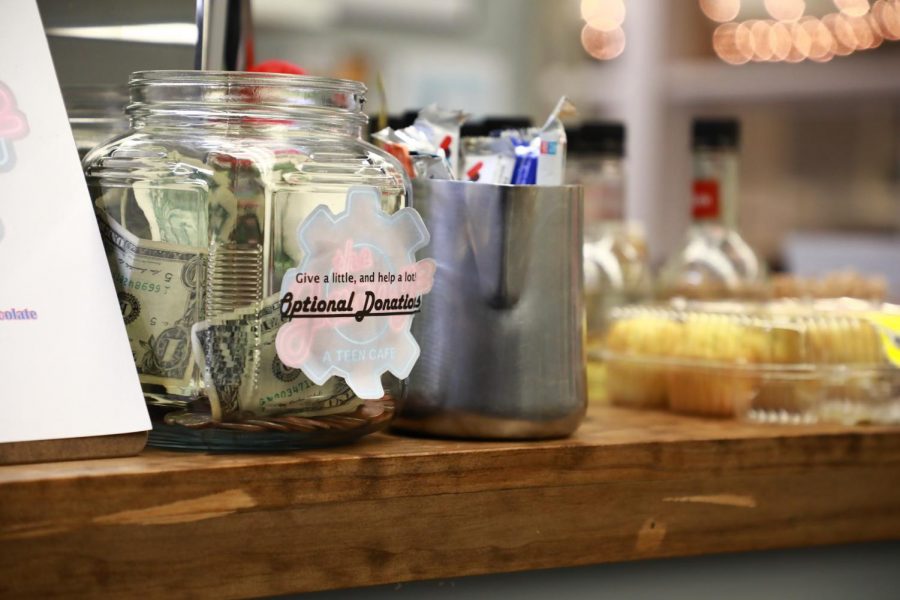The Tipping Point
A LITTLE GRATITUDE. At The Garage, a free teen café in Issaquah, accepts optional donations that allow patrons to tip only if they want to. Restaurants with an optional tip allow customers to reward exceptional service but do not make servers reliant on tips for their income.
December 17, 2018
There is nothing worse than going on a date and having to pay the entire tip yourself. Tipping is such a normal practice in America that it is hard to remember that people who were born in other parts of the world, like Europe, did not grow up with the standard of a fifteen to twenty percent tip on restaurant services. Tipping is an embarrassing, ineffective, and all around illogical North American societal norm that we should put out of practice for the sake of all of our wallets.
The current system allows tipped workers to be paid far less than minimum wage, a measly $2.13 that keeps many servers below the poverty line to the point at which they have to rely on welfare and the generosity of their customers. And there are many problems with a corrupt system that allows restaurant patrons to tip servers based on their own biases like gender, race, and even shirt color. According to the Huffington Post, servers who wear red and crouch down beside their table receive bigger tips. Should the wages of servers be based on such arbitrary details that rarely have anything to do with the quality of the service? There is no way that we should continue a system that leads servers to tolerate rude and harassing comments with a smile simply so they can make a living from ungrateful customers. As stated by The Economist, tipping paves the way for harassment as servers do not want to risk their tips to stand up for themselves. In addition, the wage gap between cooks and servers is also an issue. It is hard for restaurants to find and keep talented chefs for restaurants when they get paid less than the servers who are able to receive tips. It requires a lot more skill to make food than to serve it yet restaurant paychecks do not reflect this need for talent.
While some argue that adding a service charge or raising prices could only be bad for business by inducing sticker shock in menus, there are almost two hundred restaurants in America that do not accept tips and instead impose a service charge. These are mostly upscale restaurants where higher prices will not deter customers but these businesses also have better retention of workers and a happier working environment that is evident through customer service. Some, like Doug DeMuro, complain that without tips servers would have no motivation to work while others say that they have received perfect service at restaurants that do not allow tips simply because servers are happy to work somewhere they are adequately paid.
It will take a lot of getting used to and it could never happen overnight, but in the long run, paying servers the same minimum wage as the rest of America and not accepting tips would not only reduce the number of Americans living under the poverty line, but it will pave the way for equality in restaurants and put an end to bias in income for servers.




